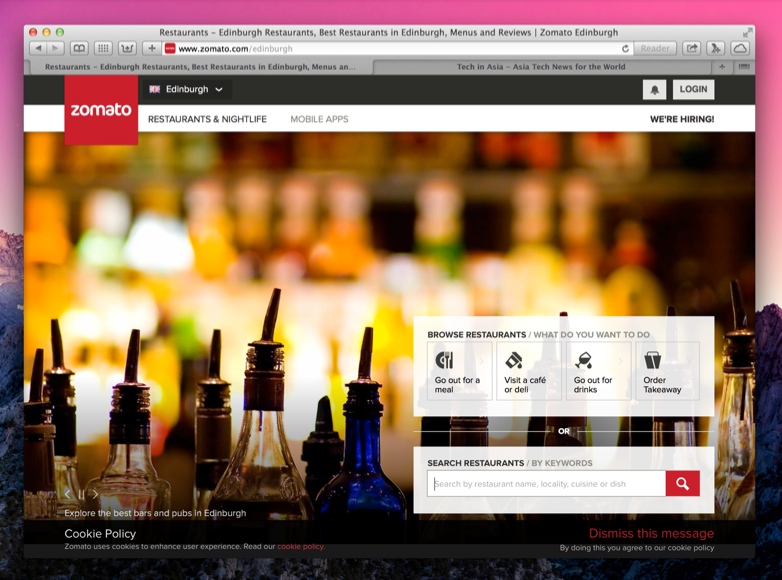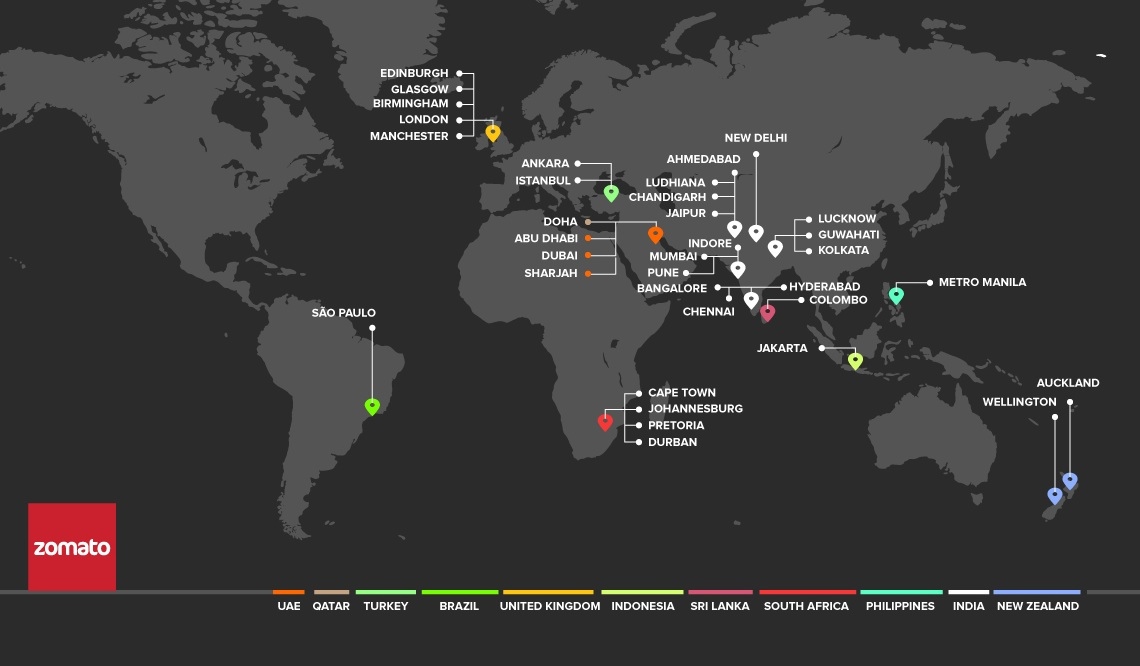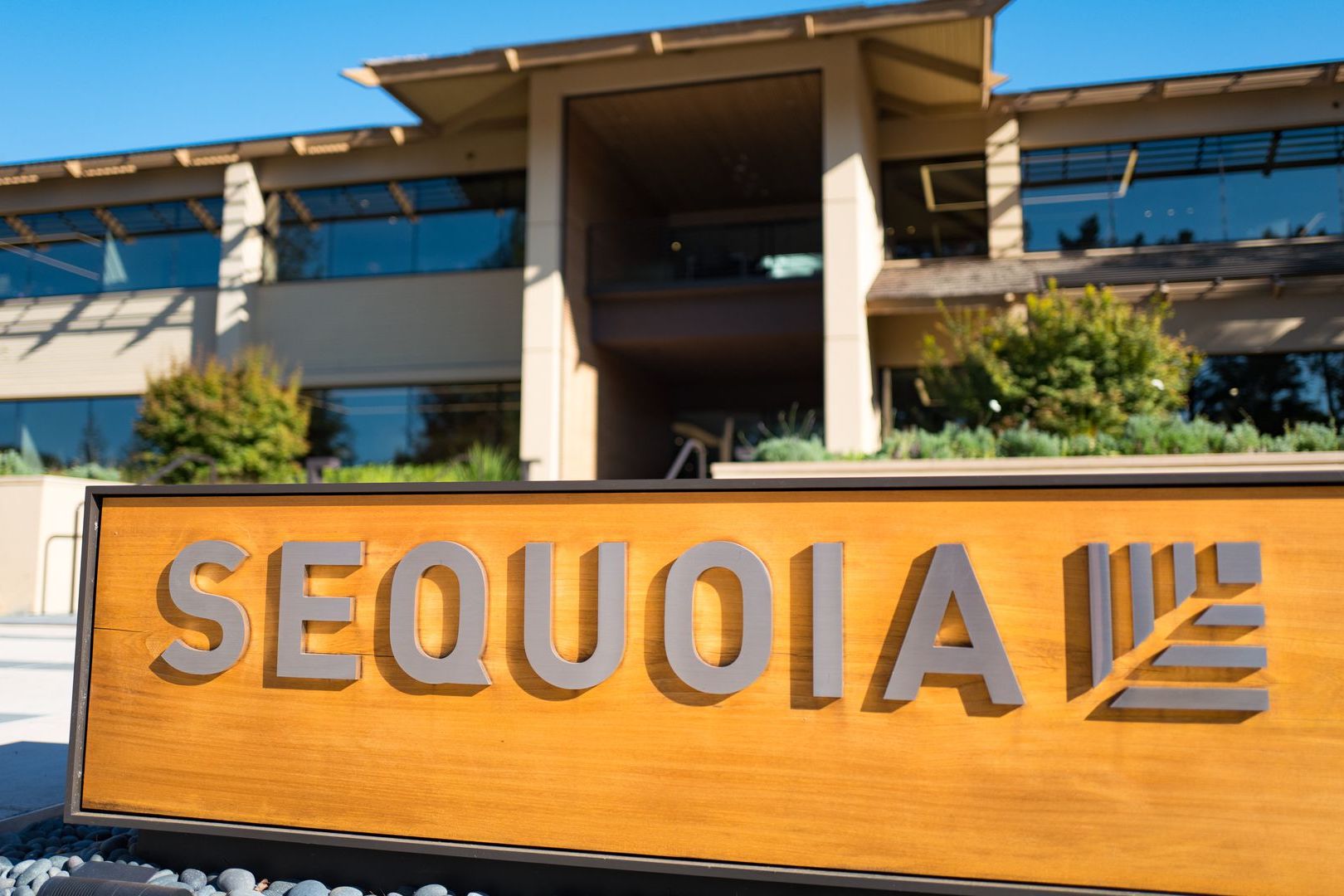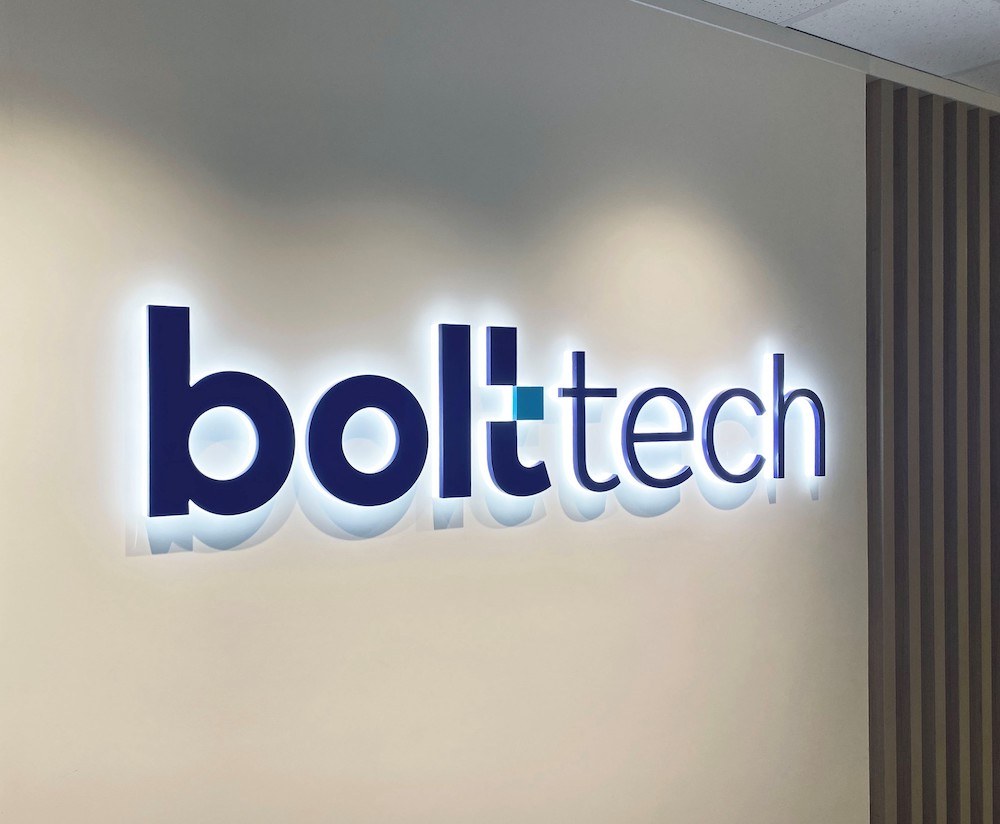India’s Zomato gets $37 million in funding led by Sequoia Capital to challenge Yelp in more markets

It’s a big day for India-based restaurant listing site Zomato. This morning the startup rolled out in six new cities around the world – Durban (South Africa), Glasgow and Edinburgh (UK), Jakarta (Indonesia), Istanbul (Turkey), and Sao Paolo (Brazil) – and is now revealing a major new funding round.
Zomato has secured $37 million in funding led by Sequoia Capital, with previous investor Info Edge also joining in.
Zomato was founded in 2008 and rebranded from ‘Foodiebay’ in 2010. The Guragon-based startup raised $750,000 in 2010, $5 million in 2011, $2.3 million in 2012, and $10 million in February this year. Today’s expansion to Jakarta, Istanbul, and Sao Paolo necessitated translating the site into three new languages – the first time the company has done so.
Albinder Dhindsa, head of international operations at Zomato, tells TechinAsia that the funding will be used to develop the product in other new languages in future, and it gives Zomato the clout to enter bigger and more developed markets. That might be a reference to places like the US or Singapore. Albinder says the site has done well against Yelp in the UK and other such markets where it has met its biggest rival, “so that gives us confidence,” he adds.
(Updated with graphic) Zomato now has listings for 35 cities across 11 countries.

(Editing by Terence Lee)
Recommended reads
 Fore Coffee brews $24m IPO despite market jitters
Fore Coffee brews $24m IPO despite market jitters Sequoia India plans to raise $2.8b for new fund
Sequoia India plans to raise $2.8b for new fund Indian no-code app builder raises $1.5m in seed money
Indian no-code app builder raises $1.5m in seed money Traveloka closes food, logistics services as travel takes off again
Traveloka closes food, logistics services as travel takes off again Bolttech acquires majority stake in Indonesia-based insurance broker
Bolttech acquires majority stake in Indonesia-based insurance broker TikTok Shop partners with Ninja Van for SEA logistics
TikTok Shop partners with Ninja Van for SEA logistics 🇮🇳 Roundup: Zoomcar appoints ex-Oyo exec as India head
🇮🇳 Roundup: Zoomcar appoints ex-Oyo exec as India head D2C retailer Love Bonito acquires SG activewear brand Butter
D2C retailer Love Bonito acquires SG activewear brand Butter Funding Societies Malaysia names co-founder as group COO, appoints new country boss
Funding Societies Malaysia names co-founder as group COO, appoints new country boss Zoomcar bags $10m in pre-IPO blank-check financing
Zoomcar bags $10m in pre-IPO blank-check financing








